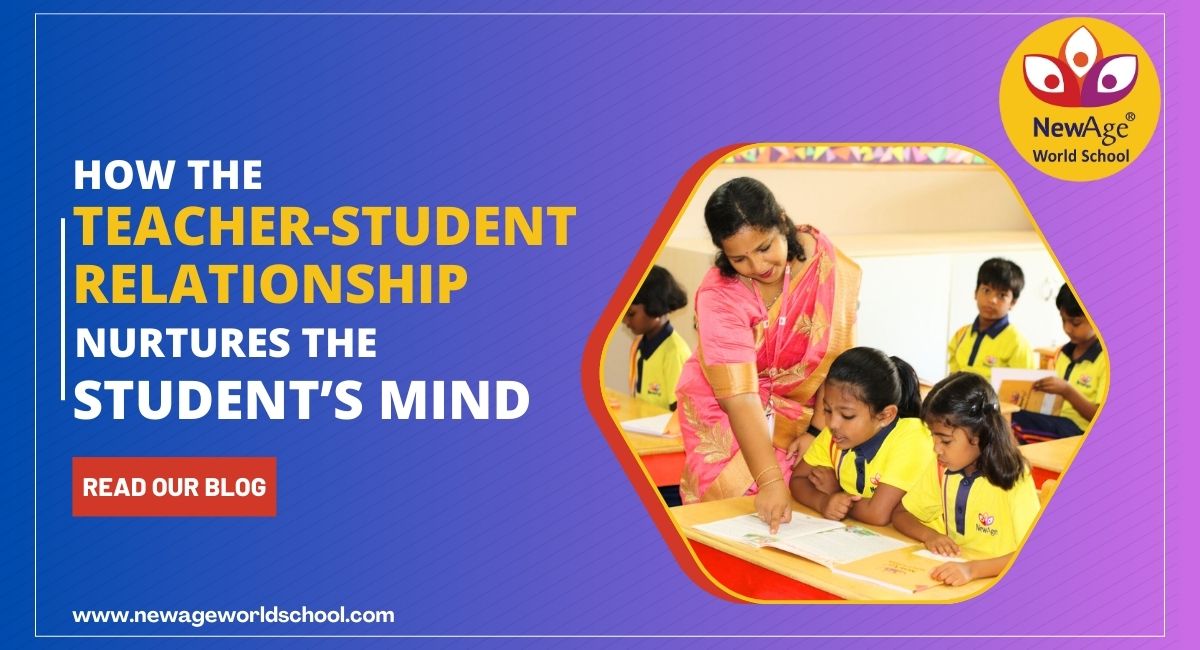

In the realm of education, the bond between teachers and students holds immense significance. It is a relationship that goes beyond the confines of the classroom, touching the very core of a student's being. Through inspiration, guidance and compassion, teachers play a pivotal role in shaping the minds and future of the students.
Teacher-student relationships are fundamental to success. When students feel supported, they are more likely to engage in learning and have better scholastic and co-scholastic outcomes. When students have positive interactions with teachers, they have fewer behavioral problems. Each of these interactions have a powerful effect on the young mind and keeps students motivated enabling them to spend more time and attention on developing a skill. On the flip side, when students don’t receive positive feedback, they are less likely to enter the positive cycle of motivation and learning. Thus, the teachers must give frequent positive feedback that supports students' beliefs that they can do well. They should ensure opportunities for students' success by assigning tasks that are doable and help the students feel that they are valued members of a learning community. Positive and supportive relationship between students and teacher ultimately promotes an intelligence of belonging and motivates them to willingly take part in different classroom activities.
Students are encouraged to attend classes if they know their teacher cares about them and will help them succeed. By improving school engagement, these relationships can also improve academic achievement. Social activities like talking and laughing improves the bond between them. Teachers play a central role in shaping children’s behavior and social skills. The students often mirror the behaviors, words and actions of the teacher. Personal connection with the students can also raise their intrinsic motivation to learn. When students feel interested in their work for the sake of mastering it, they develop a love of learning that will benefit them for their entire lives. They tend to have a more positive attitude towards their teachers, classes and lessons – and contribute actively to the teaching learning process.
Learning with fun helps to build a good relationship between students and teachers. Teachers stimulate curiosity, sparking a love for learning and exploration. Teachers help students navigate conflicts thereby teaching resolution strategies. They offer genuine praise, boosting self-esteem and confidence. Teachers foster open communication and help students express themselves confidently. They tailor instruction to meet individual needs, interests, and learning styles. The guru acts as a beacon of light, guiding the seeker on the path of knowledge and personal growth. They not only impart intellectual knowledge but also instill moral values, discipline and a sense of responsibility towards others.
Teachers should treat students with admiration. A beneficial student-teacher relationship is one where the student is challenged but protected. The teacher understands the student's psychological, emotional and physical limitations. Individualized guidance and support sprouts a sense of belongingness in the students. This is the motivating force that makes them more likely to seek help when needed. They can trust their teachers and narrow down the bridge between fear and confidence.
A school is the second home of a student. Students spend a significant portion of their lives in schools apart from what parents teach them at home. Therefore, to ensure that they remain safe and healthy, they should have confidence in the teachers. Teachers continue to play a vital role in shaping the minds of the younger generation, preparing them to face the challenges of life and contributing to the progress of society.
Leave a Reply
Your email address will not be published. Required fields are marked *
Comments
No comments available